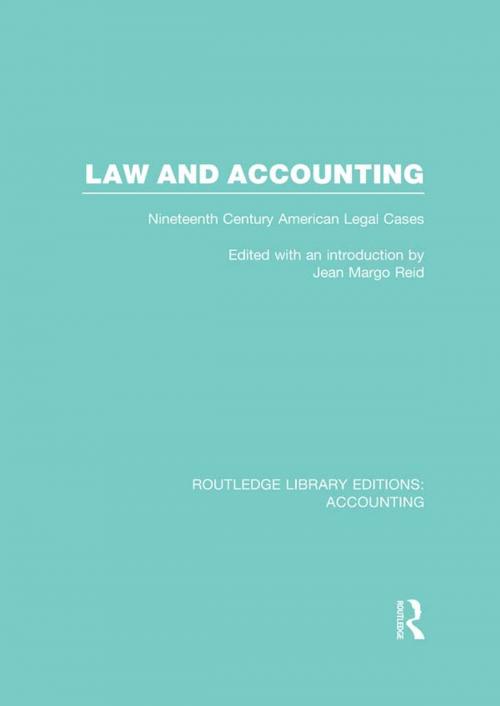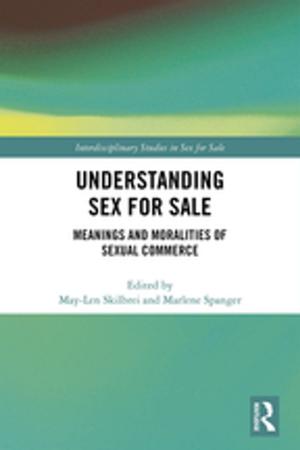Law and Accounting (RLE Accounting)
Nineteenth Century American Legal Cases
Business & Finance, Accounting| Author: | ISBN: | 9781317962731 | |
| Publisher: | Taylor and Francis | Publication: | December 4, 2013 |
| Imprint: | Routledge | Language: | English |
| Author: | |
| ISBN: | 9781317962731 |
| Publisher: | Taylor and Francis |
| Publication: | December 4, 2013 |
| Imprint: | Routledge |
| Language: | English |
This book contains 53 nineteenth century American legal cases in which courts discussed accounting issues. Some are well known: Wood v. Drummer (1824) was the foundation for the idea that capital could not be returned to shareholders and it was this restriction which made it necessary to distinguish between income and capital. The famous case of 1849, Burnes v Pennell is often cited as the source of the rule that dividends cannot be paid except from profits. However, many of the cases covered in this book are not well-known. It is often assumed that few American legal cases on accounting matters were decided in the nineteenth century. However, many of the 53 cases included here preceded the earliest British legal cases that discussed accounting issues and they are interesting for several reasons. They show that government regulation of accounting pre-dated the modern regulatory ear. They also illustration that sometimes private contracts specified a particular accounting treatment and that accounting, therefore, served to define private rights. They also illustrate that American courts discussed accrual accounting problems as early as 1837 and that a cash concept of profits was not the norm.
This book contains 53 nineteenth century American legal cases in which courts discussed accounting issues. Some are well known: Wood v. Drummer (1824) was the foundation for the idea that capital could not be returned to shareholders and it was this restriction which made it necessary to distinguish between income and capital. The famous case of 1849, Burnes v Pennell is often cited as the source of the rule that dividends cannot be paid except from profits. However, many of the cases covered in this book are not well-known. It is often assumed that few American legal cases on accounting matters were decided in the nineteenth century. However, many of the 53 cases included here preceded the earliest British legal cases that discussed accounting issues and they are interesting for several reasons. They show that government regulation of accounting pre-dated the modern regulatory ear. They also illustration that sometimes private contracts specified a particular accounting treatment and that accounting, therefore, served to define private rights. They also illustrate that American courts discussed accrual accounting problems as early as 1837 and that a cash concept of profits was not the norm.















